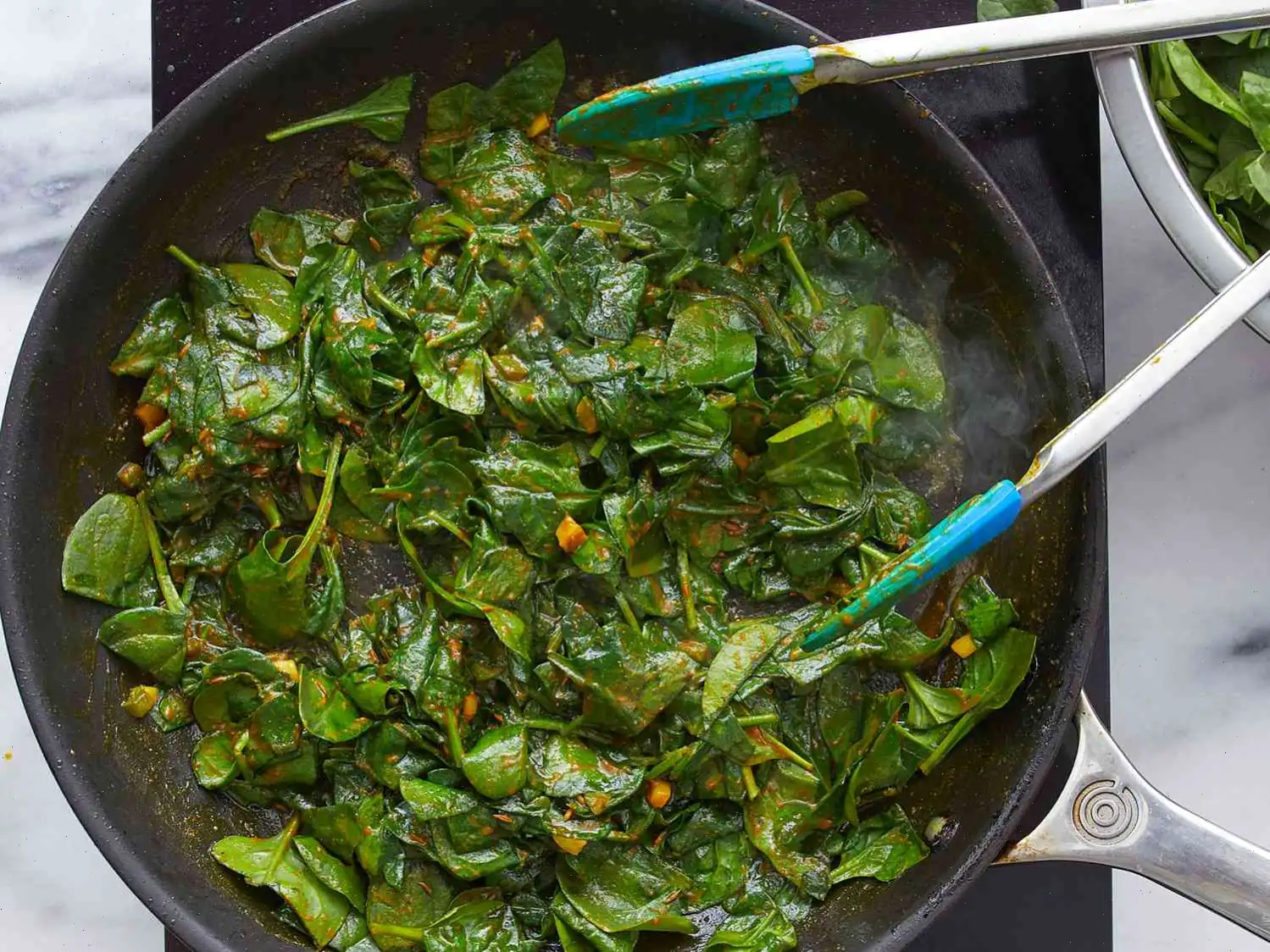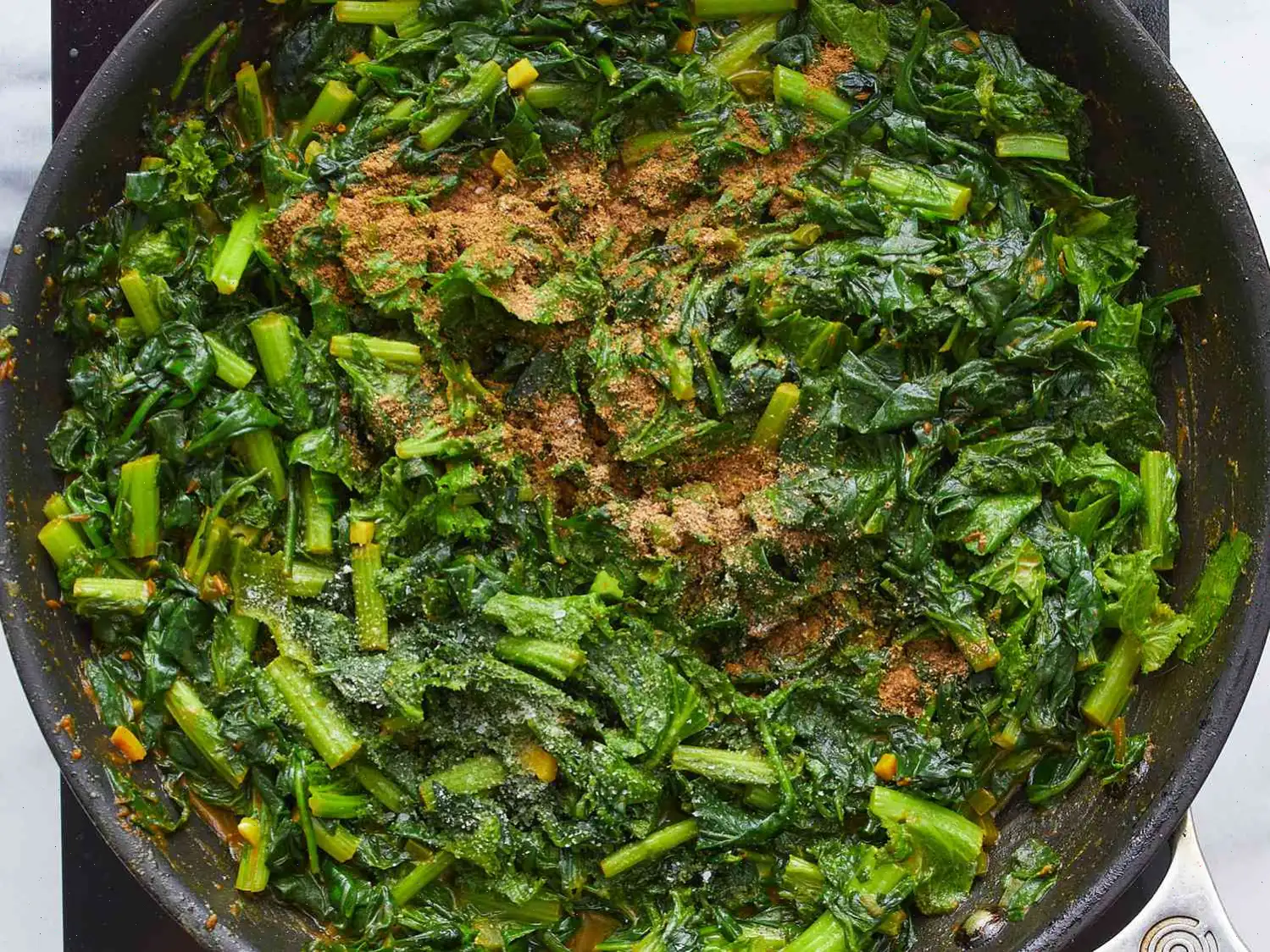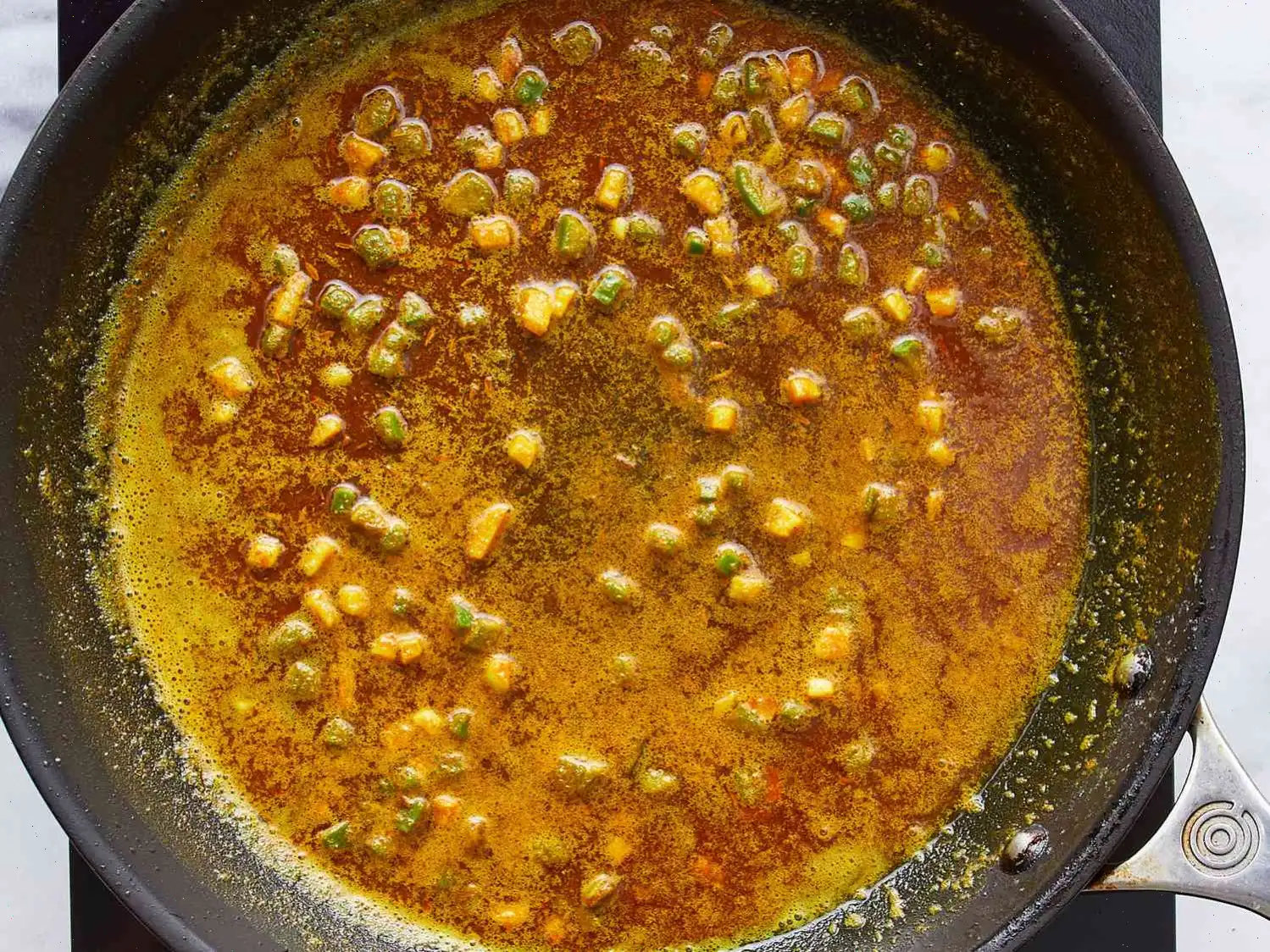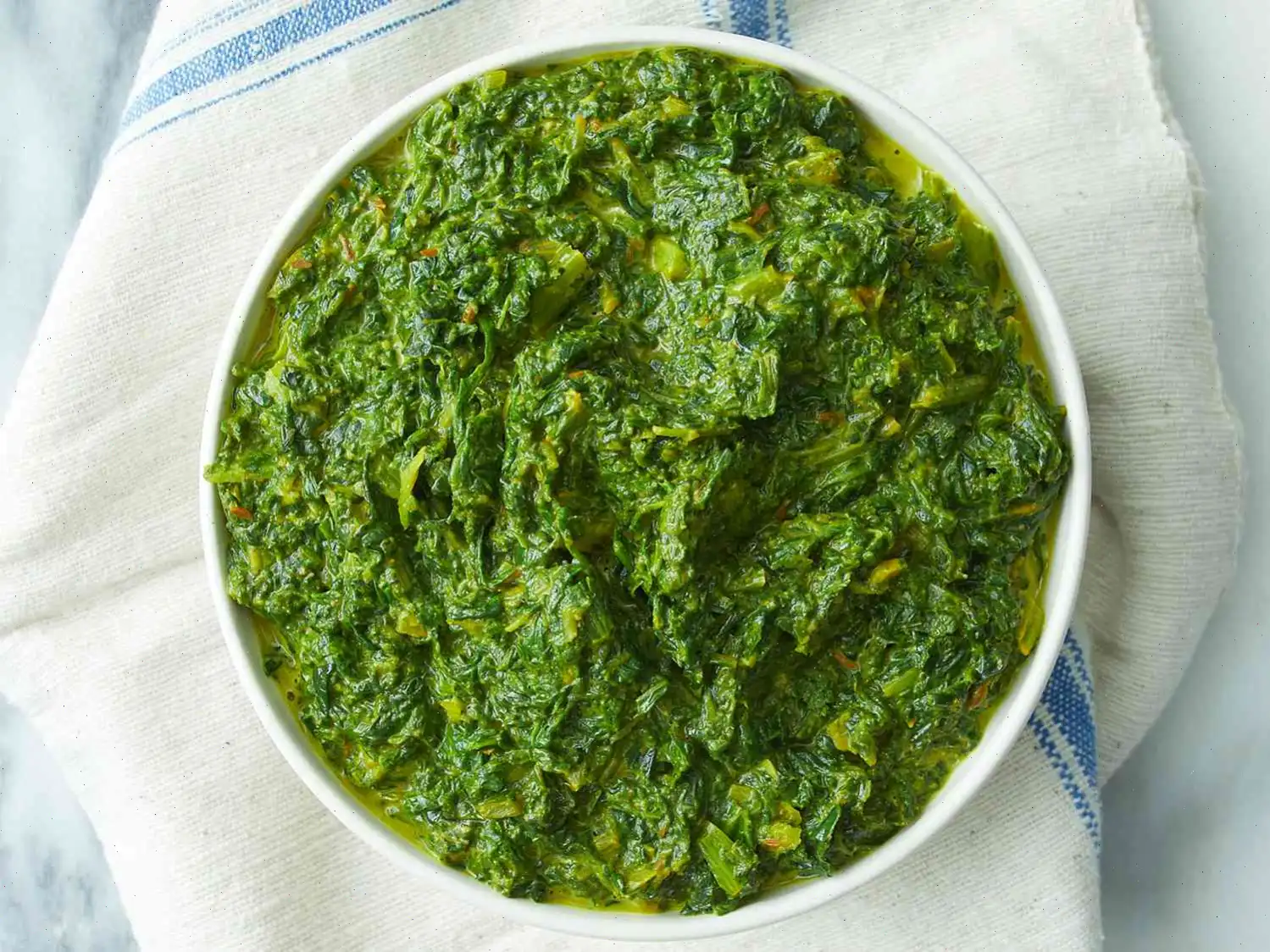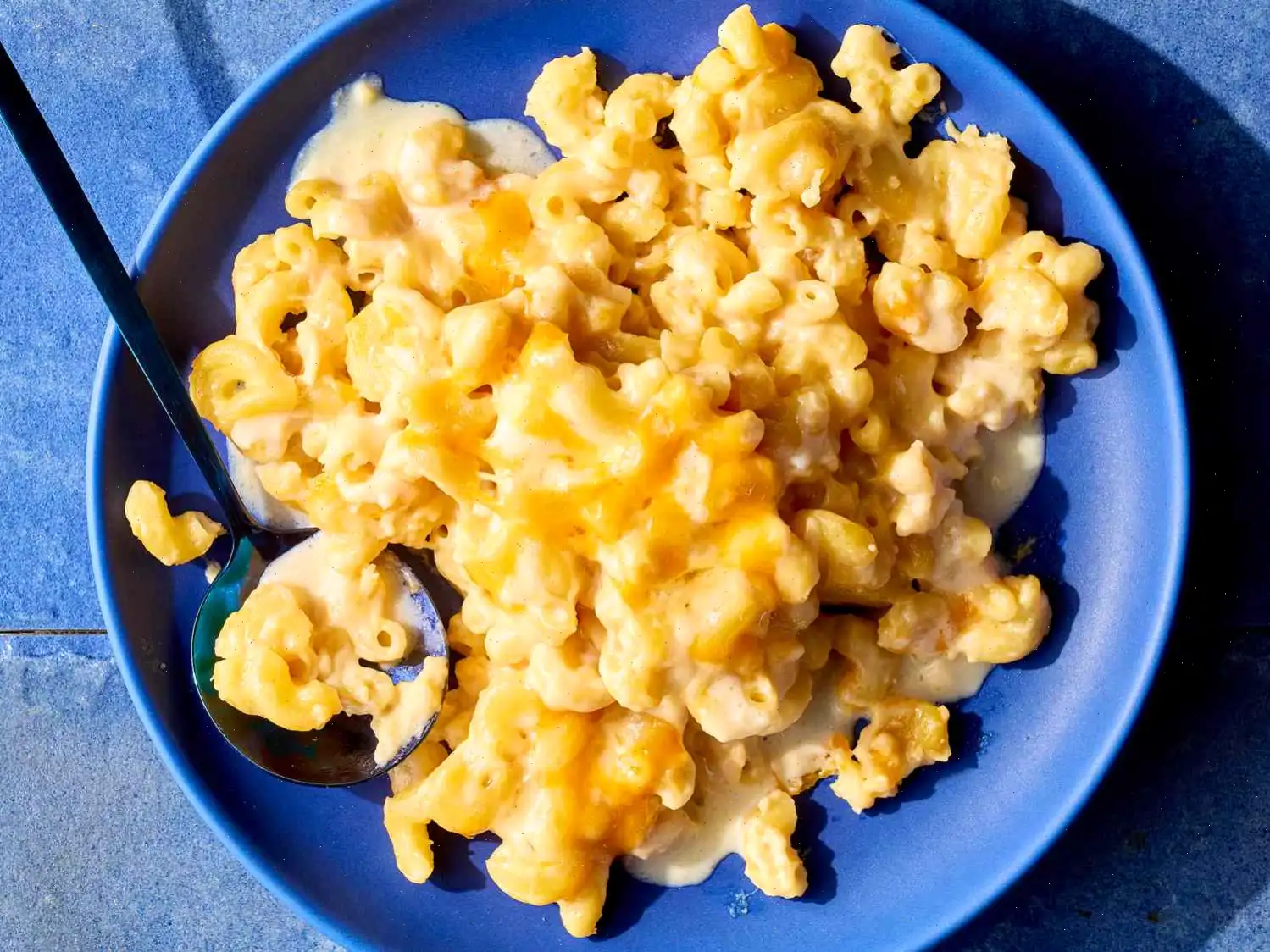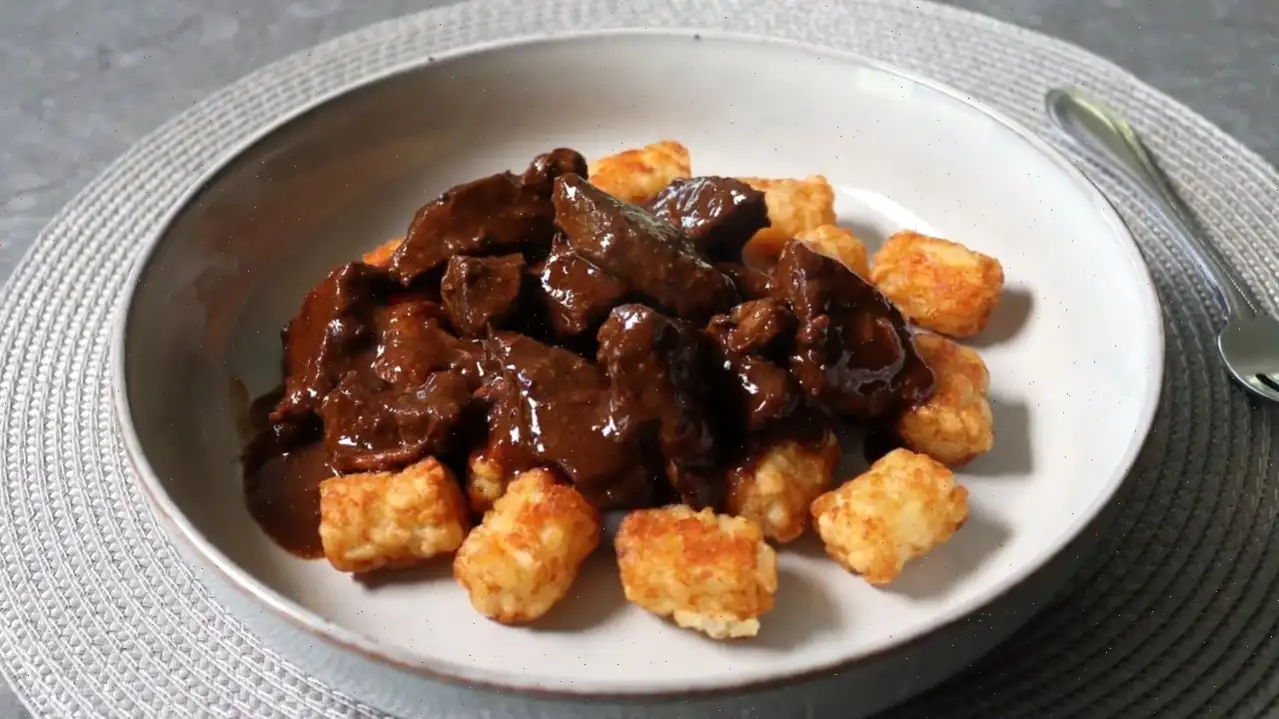
Indian Saag Recipe
Ingredients
This recipe was developed at its original yield. Ingredient amounts are automatically adjusted, but cooking times and steps remain unchanged. Note that not all recipes scale perfectly. Original recipe (1X) yields 6 servings.
- cup butter
- 2 tablespoons ground turmeric
- 2 teaspoons cumin seed
- 1 green chile pepper, seeded and diced
- 2 cloves garlic, chopped
- 1 pound chopped fresh mustard greens
- 1 pound chopped fresh spinach
- 1 teaspoon ground cumin
- 1 teaspoon ground coriander
- 1 teaspoon salt
Directions
- Melt butter in a large skillet or wok over medium-high heat.
- Cook and stir turmeric, cumin seed, chile pepper, and garlic until fragrant, about 2 minutes.
- Add chopped mustard greens and spinach in batches, starting with the tougher stems and thicker leaves.
- Continue to cook and stir until greens are thoroughly wilted.
- Stir in ground cumin, ground coriander, and salt.
- Cover the skillet, reduce the heat, and simmer for about 10 minutes until the greens are tender.
- If needed, add water to keep the greens moist during the cooking process.
Nutrition Facts (per serving)
| Calories | 182 |
| Total Fat | 16g (21% DV) |
| Saturated Fat | 10g (50% DV) |
| Cholesterol | 41mg (14% DV) |
| Sodium | 565mg (25% DV) |
| Total Carbohydrates | 8g (3% DV) |
| Dietary Fiber | 4g (15% DV) |
| Total Sugars | 1g |
| Protein | 5g (9% DV) |
| Vitamin C | 46mg (51% DV) |
| Calcium | 183mg (14% DV) |
| Iron | 5mg (28% DV) |
| Potassium | 619mg (13% DV) |
* Percent Daily Values are based on a 2,000 calorie diet. Your daily values may be higher or lower depending on your calorie needs.
** Nutrient information is not available for all ingredients. Amount is based on available nutrient data.
Note: If you are following a medically restrictive diet, please consult your doctor or registered dietitian before preparing this recipe for personal consumption.
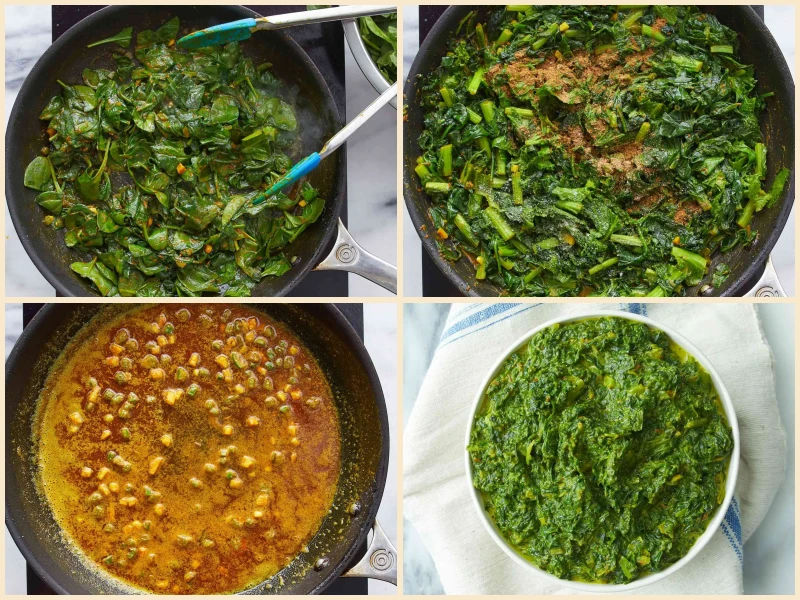
History of Saag
Indian Saag is a traditional dish that dates back centuries and is a staple in Indian cuisine. It is a dish made with a variety of leafy greens, most commonly mustard greens and spinach, cooked down into a thick, flavorful curry. The name "saag" simply means "greens" in Hindi, and the dish is a representation of how Indian cuisine often incorporates local and seasonal vegetables into hearty, spiced preparations. Saag is most often associated with Punjab, a region in northern India, where mustard greens are abundantly grown and are a key component of the dish.
Regional Variations of Saag
While the core ingredients and flavors of saag remain largely the same, there are regional variations that make the dish unique to different areas of India. In Punjab, saag is commonly prepared with mustard greens, and it is often paired with makki di roti (cornmeal flatbread). In other regions like Gujarat or Tamil Nadu, the greens may vary and different spices or condiments are added, such as yogurt, cream, or even ghee for a richer flavor. Another interesting variation is "saag paneer," which involves adding cubes of paneer (Indian cottage cheese) to the dish, turning it into a protein-packed meal.
How Saag Differs from Similar Dishes
Saag is often compared to dishes like "sarson da saag" from Punjab and "saag aloo" (saag with potatoes), but it stands out because of its simplicity and the unique combination of bitter and mild greens. Unlike some similar dishes, which focus on one particular green like spinach, saag typically combines multiple varieties of leafy vegetables. The cooking techniquewhere the greens are cooked down until they form a thick, stewy consistencyalso distinguishes saag from other curries, such as "dal" or "chana masala," which have a more soupy texture.
Where Saag is Typically Served
Saag is a versatile dish and can be found throughout India, especially in North Indian homes and restaurants. In the Punjab region, it is often served with makki di roti (corn flatbread) and a dollop of ghee. Outside of India, it is a popular choice in Indian restaurants around the world. In some countries, it is served as a side dish alongside rice or naan bread. In the West, where it is sometimes made with spinach as the main green, saag is often enjoyed as a vegetarian or vegan option, offering a hearty and flavorful alternative to meat-based dishes.
Interesting Facts About Saag
- Saag is not just delicious but highly nutritious, as it is packed with vitamins A, C, and K, and a good source of calcium and iron.
- Mustard greens, which are often used in traditional saag, are known for their slightly bitter taste, which gives the dish a distinctive flavor profile.
- Saag is often made with ghee (clarified butter), adding a rich, buttery flavor that complements the earthy greens.
- In Punjab, saag is traditionally served during the winter months when mustard greens are in season, as they thrive in cooler weather.
- Although saag is commonly paired with makki di roti in Punjab, some regions prefer to serve it with steamed rice or flatbread like naan or paratha.
Conclusion
Indian saag is more than just a dishit's a reflection of India's agricultural diversity and its rich culinary traditions. Whether made with mustard greens, spinach, or a combination of greens, saag offers a complex flavor profile that balances mild, bitter, and earthy tastes. Its regional variations and adaptability make it a dish that can be enjoyed in various ways, making it a beloved comfort food in Indian cuisine. Next time you prepare saag, remember that you're not just cooking a meal, but partaking in a centuries-old tradition that has delighted taste buds across India and the world.
FAQ about Indian Saag Recipe
Comments
Patrick McCreary
10/06/2025 01:52:54 PM
Great recipe! One alteration I made on the advice of a local Indian restaurant was to mix 2 tablespoons of cornstarch and 3 tablespoons of water and add this mixture and stir well once the greens have wilted. Then cover and cook for the remaining ten minutes.
lianqi
11/20/2017 11:48:12 PM
I made a lot of small changes but kept the overall recipe and process mostly the same. It turned out really well! First, I didn't have any coriander, so I left that out. I also couldn't find fresh green chili at our local market, so I substituted 1 tsp of ground red chili. It was slightly too spicy, so I'd go down to 1/2 tsp or a heaping 1/2 next time. I used a mix of fresh chopped spinach and kale. Can't get mustard greens easily where I live. 2 Tbsp of turmeric seemed like a lot, so I used 1 heaping Tbsp. I followed the reviewer Patrick's advice to add 2 Tbsp of cornstarch and 3 Tbsp of water before letting the dish simmer. Then, after it was all done cooking, I put it through the food processor for about a minute to get the spinach and kale more finely chopped. I definitely recommend that. It made it much more like the saag dishes I've had at Indian restaurants. Finally, I added about five dollops of cream cheese right before serving. One of my friends had done that as a substitute for paneer when cooking this dish in the past. Not as authentic but it's quicker and easier and still tastes good. I've always been intimidated by cooking Indian-style dishes at home but this recipe made it easy. So glad to find it!
2thDrManda
09/05/2018 04:47:34 AM
Turned out great, only used spinach, added garam masala, a couple tablespoons of heavy cream. Could have used coconut milk, but didn’t feel like opening a whole can. Used a stick blender to pulse garlic, ginger and spinach to a nice consistency.
Randi W
02/19/2014 07:21:23 PM
YUM! This is the most perfect Saag recipe I have ever tried. I substituded a full head of kale for 3/4 of the spinach, simmered it for an extra 10 minutes to break down the kale. It was PERFECT!
LimeTongs2854
02/20/2023 01:02:18 AM
Nice base but needed a touch of sugar and tomato paste. I notice some people have mentioned that it is missing something, and that thing for me was tomato paste and a teaspoon of sugar. Can also use tomato sauce/ketchup without the sugar. Can also add a half to one whole teaspoon of mustard powder to really get that authentic flavor.
Tyler Brown
05/26/2018 07:09:58 PM
Made it once — already a favorite.
Onyxx Blanca
11/03/2018 06:44:09 PM
I used half the butter, and it was delicious (with half the fat and cholesterol). Made this with fresh mustard greens and kale, and frozen spinach.
Jimmy
06/15/2018 12:57:55 AM
I added garbanzo beans, 2 chopped shallots and 2 chopped Roma tomatoes. It was amazing! This will be on the dinner rotation!
Deborah Cohn
02/04/2018 03:29:33 AM
I didn't like this recipe. Tasted very strange. While I was cooking I was a little skeptical about adding 2 TABLESPOONS of turmeric. But I've never made Indian food before so I went with it. It totally overpowered the dish. I looked at a bunch of other Saag recipes and it called for 1/4 TEASPOON of turmeric or no turmeric at all. My Indian friends said as far as she knew no one ever uses more than 1/2 tsp turmeric in their saag. I don't know if it was a typo, or a regional thing, but I really recommend scaling way back on the turmeric.
Nevin Zehr
12/15/2018 03:47:35 AM
I made the recipe as written and it tasted incredibly bland compared to the saag my Desi friends make. I added three times the amount of spices called for in this recipe and it started to taste OK. Then I added a bunch of cayenne (at least two tbs) and that brought it together. Also the whole cumin seeds give it a weird crunchy mouthfeel; I would recommend ground cumin. Also, text time I make this recipe I am going to use ghee instead of butter, as something didn't taste quite "authentic" about it and I suspect that's what it is.
Jennifer Lynn Gunderson
03/18/2010 05:55:54 PM
This saag turned out great. Saag paneer is my favorite dish in Indian restaurants, and this version didn't dissapoint. I used swiss chard that I had in my freezer from my garden this past summer, and some spinach. I made homemade paneer and I also stirred in some plain yogurt at the end for a creamier texture. It was great!
Irma Nippert
06/17/2024 02:08:20 PM
I used curly dock and lambsquarters from my garden for the greens. I also added fresh ginger, at the suggestion of reviewers. The dock has a sour flavor, so it tastes like lemon was added. The dock is also a bit mucilaginous, so no cornstarch required!
Jim Vermont
03/11/2024 12:14:33 AM
Too bitter. Needed garam masala, ginger, and a touch of lemon. Coconut oil might help as well
SpeedySyrup7104
01/02/2024 11:25:54 PM
I think there is way too much turmeric. It actually tasted a little bitter and flat to me, as if it was missing some other spices.
Kevin
05/14/2023 10:40:15 PM
Added ginger, garam masala, sugar, and tomato paste as suggested by others. Also added some cornstarch, but definitely might want to just do 1 teaspoon is the flavor was there, but it was extremely mushy.
JennyO
01/30/2023 06:54:58 PM
Made it and tasted WAY off. Went to a friend to ask what I did wrong and he said the recipe is missing the ginger and garam masala
Dave
06/21/2021 10:50:10 PM
I've made this dish twice using a spinach/kale combo and everything went fine. This is an easy & versatile recipe.
SaltyBird
08/30/2020 10:59:10 PM
Was delicious and easy to make. Made it using frozen spinach and ghee. It was a bit too spicy for me but I can’t do spicy. Hubs said it wasn’t spicy to him. I just ate it with a little plain yogurt like I do with pretty much any spicy dish. Definitely plan to make again with the same spice level.
WeirdAuntMartha
09/24/2019 02:04:28 AM
I used kale, spinach, ground cumin, turmeric, salt, pepper, and some chili lime seasoning. I threw in shrimp at the end and served it with basmati rice and garlic naan. We really liked it!
Harper McQueed
04/01/2019 11:09:31 AM
Great recipe, I used collard greens, kale and spinach and it came out great!


